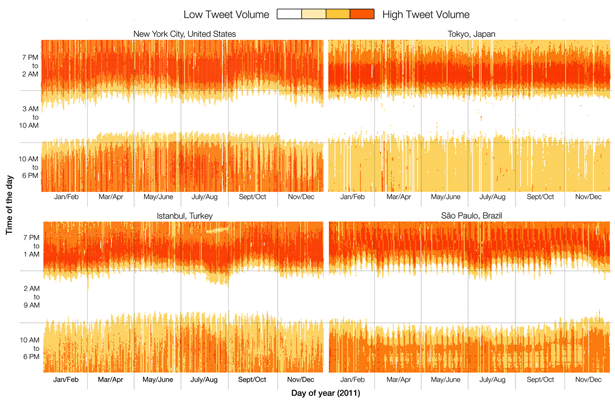The first shots taken from Curiosity after its successful touchdown this morning.

On the left, Curiosity takes a selfie of its shadow. On the right, you can see the surface of Mars, and Curiosity’s wheel in the corner.
(CREDIT: NASA)

The first shots taken from Curiosity after its successful touchdown this morning.

On the left, Curiosity takes a selfie of its shadow. On the right, you can see the surface of Mars, and Curiosity’s wheel in the corner.
(CREDIT: NASA)

RWE AG : Germany’s RWE Won’t Build New Nuclear Plants Abroad – Report
06/17/2012 | 05:24pm
 German utility RWE AG (RWE.XE) has decided it won’t manufacture any new nuclear plants abroad after Germany’s accelerated nuclear-energy exit, Munich daily Sueddeutsche Zeitung reports in a pre-release of an article in Monday’s edition.
German utility RWE AG (RWE.XE) has decided it won’t manufacture any new nuclear plants abroad after Germany’s accelerated nuclear-energy exit, Munich daily Sueddeutsche Zeitung reports in a pre-release of an article in Monday’s edition.
Citing people who attended a managers’ meeting of the company in Istanbul, the paper reports that RWE’s incoming chief executive, Peter Terium, informed the company’s high-ranking managers of the management board’s decision at the gathering.
The decision, which signals RWE will exit the international nuclear-energy business in the coming years, is also supported by the company’s municipal major shareholders, the people familiar with the matter told the newspaper.
Mr. Terium, who will become CEO at the beginning of July, plans to expand the company’s solar-energy business in Germany, the newspaper reports. RWE plans to build solar-power plants together with municipal utilities and also wants to enter the business with private customers, the newspaper writes.
Newspaper website: www.sueddeutsche.de
Write to the Frankfurt Bureau at [email protected].
via RWE AG : Germany’s RWE Won’t Build New Nuclear Plants Abroad – Report | 4-Traders.

Creationism is no longer simply an American battleground in primary and secondary school education; it’s gone global. Raising questions about the nature of government involvement in education, both South Korea and Turkey made news this week in relation to moves against the mainstream scientific community’s support of evolution.

South Korean publishers sidestepped scientific debate altogether by heeding a petition passed on to them by the government. Scientists were not consulted on the validity of any claims in the petition to “delete the ‘error’ of evolution from textbooks to ‘correct’ students’ views of the world,” although the petition reportedly has signatures of both scientists and teachers.
Turkey’s academia hosted its first conference for creationist ideas at Marmara University in Istanbul from May 16-17, titled “Why Does Science Deny Inter-Species Evolution?” The conference highlighted proposed deficiencies in the theory of evolution, bringing some transparency to the debates and combating notions that evolution is supported and acknowledged by universities and the scientific world.
Officially, Turkish schools are directed to teach both sides–creationist and evolutionist. However, teachers enjoy great latitude in the classroom, and Kareem Cankocak, a professor at Istanbul Technical University who supports evolution, aggressively claims that 90% of incoming students either do not believe or do not know about evolutionary principles.
As in the United States, the debate relies more upon undermining evolution than using scientific data to support creation science, continually drawing religion into the fray (Islam in Turkey and Christianity in South Korea). The debate is unlikely to end anytime soon, but education will likely do its best to make the debate honest and transparent rather than circumvent the academic sphere for a purely political one.
Creative Commons Love: cosmobc on Flickr.com
via Creationism Breaking Through Against Evolution in South Korea and Turkey | Open Equal Free.

A visualization of Twitter activity shows cultural differences in when people go to bed, when they rise, and whether they tweet at work.

New York may claim to be the city that never sleeps, and while that may be a bit of an exaggeration, new data from Twitter shows that it has a pretty good claim to the mantle The City That Sleeps the Least.
The graphic above shows tweet volume a five-minute increments throughout 2011 for New York City, Tokyo, Istanbul, and Sao Paulo, painting a picture of when people around the world are tweeting, sleeping, and waking up. A few noticeable trends:
People in New York, Istanbul, and Sao Paulo all stay up later in the summer. New Yorkers seem to also stay up later in the winter. Those in Tokyo are the most consistent regardless of season.
Japanese twitter users don’t tweet during the work day.
New Yorkers have the least variation between tweet volume during work and at night.
Paulistas sleep later. It also appears they go to bed earlier, in contravention of their reputation as night-life lovers. Also possible: They don’t tweet as much when they’re out having a good time. (Editor’s note: This is clearly implausible?)
The image comes from a paper by Twitter analysts Jimmy Lin and Miguel Rios, and was presented earlier today at a workshop on social-media visualization in Dublin.
via Technology – Rebecca J. Rosen – When Twitter Sleeps: Comparing NYC, Tokyo, Istanbul, and São Paulo – The Atlantic.

The President of Turkey, Abdullah Gül (pictured right, on left), recently visited Apple’s California HQ and met with Apple CEO Tim Cook, according to Turkish-based Anatolia News Agency. The Turkish President was in the United States to promote Turkey in a bid to be the host for the 2020 Olympic Games as well as visit some of the biggest technology companies in the valley including Google where he tried on Google Glasses and drove in the driverless car.
On a subject very close to Apple’s motives and beliefs, the President discussed a new technology in education project with Cook. This is an important subject for Apple with the company’s recent push of the iPad and iBooks into education. On the note of iPad usage, the Turkish President expressed concern with the Turkish character input. Cook said he was unaware of the issue, but he said he would take care of it.
Also, it sounds like there might be some Apple Stores in Turkey’s future as well.
via President of Turkey visits Tim Cook, discusses bringing technology into Turkish education | 9to5Mac | Apple Intelligence.

(RTTNews) – Talks between Turkish President Abdullah Gul and his U.S. counterpart Barack Obama on the sidelines of the NATO summit in Chicago failed to make any progress on the sale of armed drones to Turkey.

Turkey seeks to buy armed drones from the United States, but the request has turned out to be controversial, with some in the U.S. Congress refusing to agree to a sale of the unmanned aircraft in the context of Ankara’s deteriorating relations with Israel, a close U.S. ally. The U.S. administration is reportedly willing to sell the drones to Turkey and is trying to persuade Congress not to block the sale, Turkish media reports said on Tuesday.
Gül reportedly told Obama during the meeting that Turkey expected the U.S. to meet its needs for fighting terrorism. But the two leaders could not make any progress on the sale of American drones to Turkey. Obama reportedly told Gül that he understood Turkey’s needs and the sale of the drones was in his administration’s agenda, but he made it clear that he could not strike a deal on the issue bypassing the Congress, the reports said.
Debate over the planned sale has heated up lately after a U.S. report claimed that American drones provided wrong information on the Kurdistan Workers’ Party (PKK), resulting in the killing of 34 civilians in bombings by Turkish warplanes across the Turkish-Iraqi border after mistaking them for PKK rebels.
Gül told a group of journalists ahead of his talks that the proposed sale would come up at the meeting with Obama. He argued that “if the sale of reapers is sensitive,” that same should hold true for F-35 jet fighter, which are even “more dangerous.” The U.S. has agreed to share F-35 technology with Turkey, the reports said.
Foreign Minister Ahmet Davutoglu, Defense Minister Ismet Yilmaz, and Turkish Ambassador to Washington Namik Tan were also present during the 30-minute talks.
Gül asked Obama to be on the front lines in the international community to help put an end to the 14 months of violence in Syria, and Obama assured Gül that the U.S. was doing what was necessary on the issue. He also said Foreign Ministers of both countries and relevant bodies were working together on the Syria crisis.
Syria is facing serious challenges because of an influx of refugees from neighboring Syria because of continued crackdowns by the Assad regime on anti-government protesters there. Turkey is now sheltering more than 25,000 Syrian refugees on its territory.
by RTT Staff Writer
via No Progress On Sale Of US Drones To Turkey.